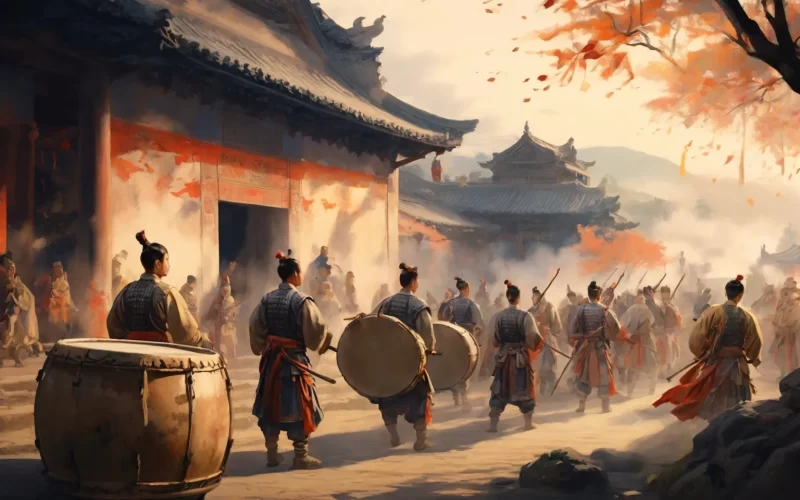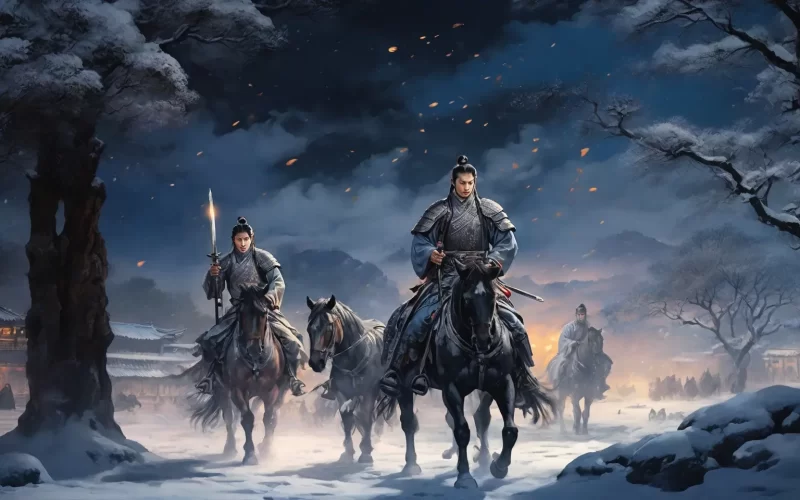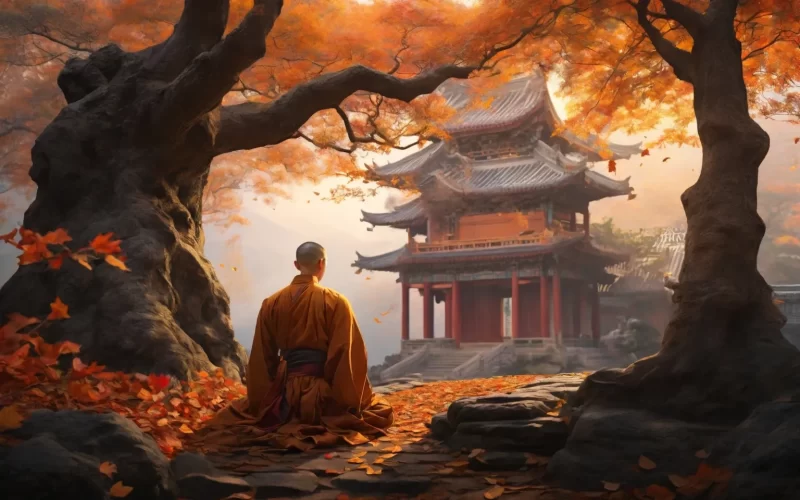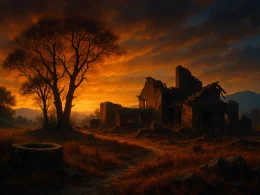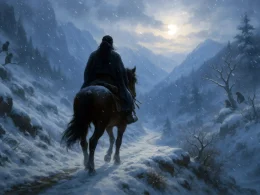Let feasting begin in the wild camp!
Let bugles cry our victory!
Let us drink, let us dance in our golden armour!
Let us thunder on rivers and hills with our drums!
Original Poem
「塞下曲 · 其四」
卢纶
野幕蔽琼筵,羌戎贺劳旋。
醉和金甲舞,雷鼓动山川。
Interpretation
This fourth poem in the series depicts a triumphant general celebrating victory with a wilderness banquet after returning to camp. The jubilant atmosphere contrasts sharply with the tension and sorrow of the previous three poems about farewells, battles, and night hunts, showcasing the glory of homecoming warriors and embodying ancient soldiers' valor and bold spirit, while also reflecting frontier ethnic harmony.
First Couplet: "野幕蔽琼筵,羌戎贺劳旋。"
Yě mù bì qióng yán, qiāng róng hè láo xuán.
Field tents canopy the jade feast; Qiang tribes come honoring the victor's return.
This couplet paints the victory banquet scene, emphasizing "field tents" and "Qiang tribes." The wilderness setting distinguishes it from capital celebrations, while the presence of minority groups subtly conveys the general's moral influence beyond military conquest, adding profound significance to the victory.
Second Couplet: "醉和金甲舞,雷鼓动山川。"
Zuì hé jīn jiǎ wǔ, léi gǔ dòng shān chuān.
Drunk in golden armor they dance; thunder drums shake mountains and streams.
Here warriors revel in victory's joy. The unusual "golden armor dance" expresses unrestrained triumph, while "thunder drums" climax the celebration, symbolizing military might and creating an awe-inspiring scene of heroic exuberance.
Holistic Appreciation
Though only four lines, the poem progresses methodically - from banquet preparation to ethnic congratulations, then drunken dancing, finally earth-shaking drums - building a complete victory celebration. The inclusion of minority tribes expands the political implications beyond mere military triumph to cross-ethnic unity. The poet's vivid imagery immerses readers completely in this unrestrained joy.
Artistic Merits
- Brevity with depth: Four lines encapsulate feast, tributes, dancing and drumming
- Ethnic harmony: "Qiang tribes congratulating" symbolizes victory's unifying power
- Dynamic contrast: Shifts from static feast to energetic dance and thunderous drums
- Sensory language: Visual "golden armor dance" and auditory "thunder drums" create visceral impact
Insights
This celebratory ode reminds us true victory lies not just in conquest but in inspiring unity. The poem's concise yet vibrant language demonstrates how heroic glory encompasses both battlefield prowess and the power to bring peace and joy. It suggests the highest military achievement is measured not by enemies defeated, but by communities united in celebration.
Poem translator
Kiang Kanghu
About the poet
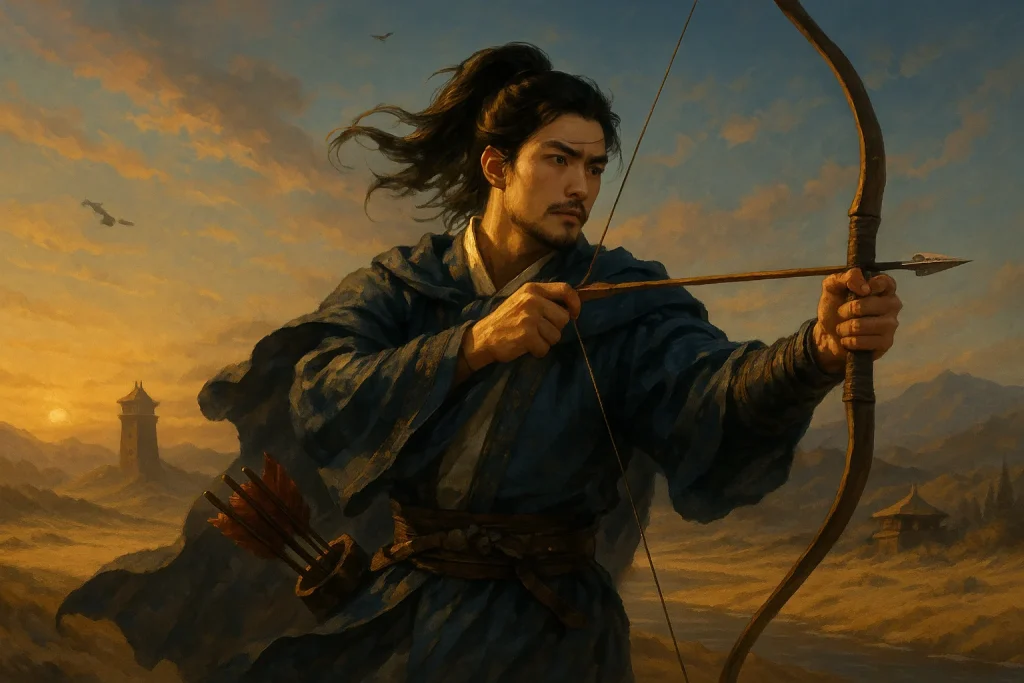
Lu Lun (卢纶), 748 - 798 A.D., was a native of Yongji, Shanxi Province, and was one of the "Ten Scholarly Men of the Dali Dynasty". Lu Lun was a judge of the Marshal's Office in Hezhong, and he served as the inspector of the Ministry of Revenue. His poems were more eloquent and liberal, with many works of farewells and rewards, as well as works reflecting the life of soldiers. Five volumes of his poems are recorded in Quan Tang Shi (All Tang Poems).






